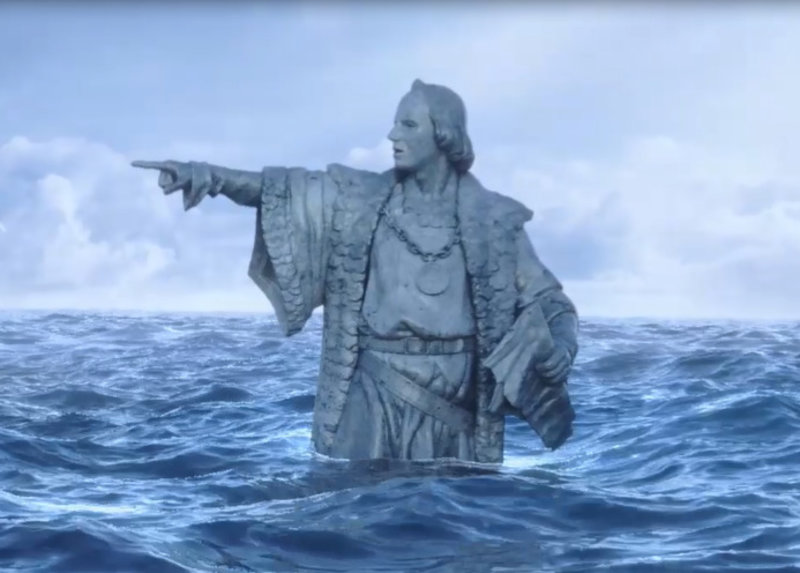THE LAST WORD
mea maxima culpa
It’s hard to know what to do about the climate emergency. Whenever it comes up I feel under pressure to do something about it. I must say that dealing with what could be the single most urgent existential threat to humanity seems a little above my pay grade, and without doubt there are other people who are much better qualified than I am to tackle it, but I’m willing to give it my best shot.
I’ve actually been working on saving the planet for some time now. I recycle all my paper, plastic and glass with obsessive devotion, although I worry that in washing the remains of food from containers I could be adding to Earth’s woes by wasting water. The problem is that they begin to smell if you don’t wash them out as it takes time for the waste material to accumulate.
But maybe I’m doing it all wrong and should be taking the waste to the recycle bins more frequently. Shameful though it is, there have been times when I’ve let my recycling build up to the point that I’ve had to use the car to get it all to the bins on the other side of the village. Imagine if the emissions I produced on those trips were the ones that tipped the balance and plunged us all into a climate apocalypse. I’d never be able to live with myself.
I find it hard to sleep if I know that I turned the television off with the remote, putting it on standby, rather than unplugging it from the wall. That little red light in the bottom left hand corner burns away in the back of my mind, proof if any was needed of my blatant irresponsibility and my lack of consideration for our beautiful planet and its precious ecosystems. Eventually I give into the inevitable, throw off the covers, and go stomping into the living room to unplug the telly.
Man-made climate change, they call it, which means it’s our fault, my fault. If only I hadn’t thrown that tuna tin in the bin because I was too lazy to clean it out and put it with the rest of the recycling in the garage. As we speak, the 2021 United Nations Climate Change Conference is taking place in Scotland. I just pray that my name doesn’t come up if they start looking for culprits.
But then I read in our interview with climate expert professor Manola Brunet on page 20 that “there has to be an end to shifting responsibility or solutions for climate change onto society” and that “small measures like turning off machines to save energy lead nowhere.” According to the good professor, it’s not all my fault – thank god – and the real responsibility lies with the governments and companies that cause the vast majority of emissions. Profound changes in the models of production are required, she argues, and the first step is to actually enforce the laws and regulations on restricting emissions that already exist. Environmentalist and biologist Xavi Jiménez makes a similar argument in an interview on page 18.
While I must admit it’s a relief to learn that my laziness and irresponsibility have not had the environmental impact that I’d feared, and that if anyone should take more responsibility for the problem it is the politicians and the corporations, I, and you, are not completely off the hook. After all, the politicians only get into positions of power if we vote for them, and corporations only attain the influence they enjoy if we buy their products and services.


